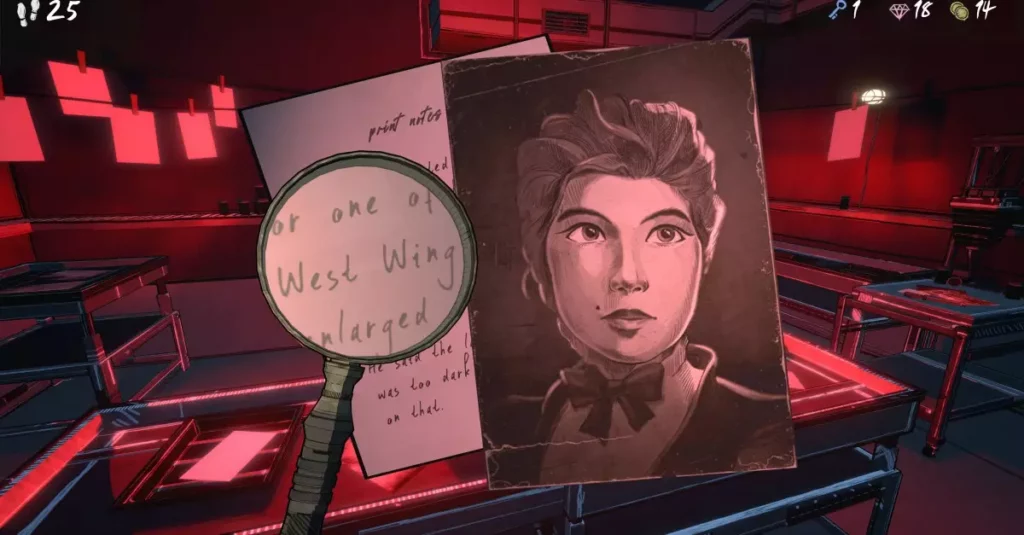In an era defined by technological advancement and unprecedented access to entertainment, mobile gaming should be a celebration of creativity and innovation. However, within the vibrant ecosystem of mobile applications lies a sinister underbelly: the rise of unauthorized clones that threaten the integrity of original works. The recent scenario involving the much-anticipated game, Blue Prince, exemplifies this troubling trend. As this well-crafted title from Dogubomb and publisher Raw Fury gained attention, a strikingly similar impostor infiltrated the App Store, masquerading as the genuine article. For avid gamers, this isn’t merely a nuisance—it strikes at the heart of what makes gaming an art form.
How Clones Compromise the Art of Gaming
To many, Blue Prince is more than a game; it’s an intricate tapestry woven together with engaging narratives and visually arresting graphics that embody the ethos of what an interactive experience should be. So, when a shoddy clone surfaced, achieving the #8 spot in the Entertainment category, it raised critical flags about our collective values as consumers. How desperate must we be for mobile adaptations that we are willing to accept subpar replicas in lieu of authentic experiences? This obsession with accessibility underscores a disturbing reality: with each download of these unaffiliated versions, we chip away at the cultural value that original creators strive to cultivate.
Take a moment to consider the absurdity of downloading a game because it appears to be authentic—only to discover its glaring inadequacies. The clone of Blue Prince presented itself as a visual feast but unraveled upon closer scrutiny. It was falsely attributed to a developer named Samet Altinay, a name that held no roots in the game’s development history, revealing a fundamental lack of accountability. The absence of basic copyright details, such as a misrepresentation of the developer’s name, is not minor—it’s emblematic of a broader indifference towards respecting intellectual property.
Quality vs. Convenience: A Dangerous Trade-off
One cannot help but ponder the glaring questions surrounding these clone incidents. How does a substandard replica evade the scrutiny of the App Store’s review process? When an environment ripe with creativity permits such inept work to flourish, it diminishes the very foundation of trust that platforms like Apple have built their reputations upon. This incident is more than mere oversight; it is a disheartening reflection of a marketplace that often prioritizes convenience over quality.
Many gamers naively succumb to the allure of a game that appears similar, overlooking the risks intrinsic to unverified software. Bugs and glitches, such as inexplicable falls through the floor, quickly reveal the imperfections that a quality assurance team would typically eliminate. Unlike the careful craftsmanship that audiences expect from reputable developers, these copies evoke the feeling of disappointment—a stark reminder that the yearning for immediate gratification often leads us down precarious paths.
Systemic Failures and the Role of Consumers
The lack of response from Apple regarding these glaring oversights is equally alarming. Such silence not only frustrates developers who pour their hearts into their creations but also leaves consumers on shaky ground. As platforms vie for an image of integrity and innovation, it becomes imperative for them to adopt stringent measures against unauthorized releases. If not addressed, this issue fosters an environment that can only harm the original creators while reducing the overall quality of content available on the market.
This scenario serves as a clarion call to consumers. The thrill of discovering a new game should never overshadow the responsibility of validating its authenticity. Each download of pirated content reverberates through the gaming industry, hindering the profitability and creative capacity of original authors. As consumers, we must cultivate awareness, scrutinizing beyond the dazzling graphics and glowing reviews that can easily be manipulated.
Cultural Dissonance: Ethics in Gaming Consumption
Moreover, this predicament speaks to a larger cultural issue within the gaming community. How do we reconcile our desire for speed and access with the obligation to support those who create? The prevalence of clone culture complicates this equation further. A thriving gaming industry depends not just on users demanding immediate gratification but on an active engagement with the creators reliant on consumer support. We face a complex labyrinth; each gamer should engage critically with their own consumption habits and reflect on the repercussions of those choices.
As we navigate these treacherous waters of mobile gaming, it becomes increasingly clear: aligning our values with the creators’ passions is essential to preserving a rich and authentic gaming landscape. The fate of mobile gaming rests not only on developers and platforms but also on each player’s commitment to authenticity and quality.









Leave a Reply